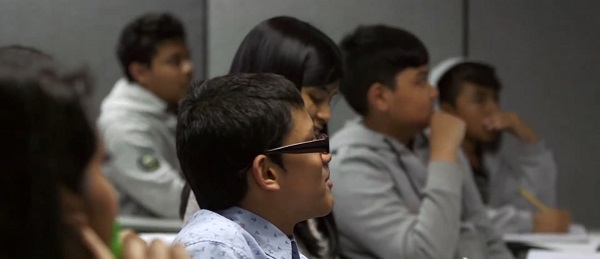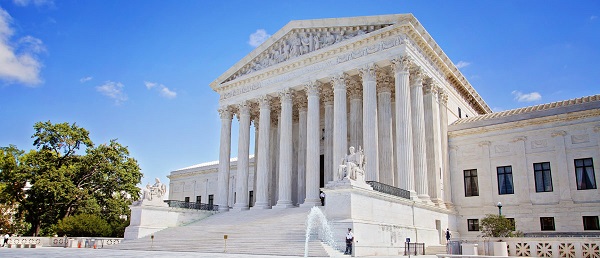Daily Caller
Freedom Of Speech Versus Preferred Pronouns? It May Go To The Supreme Court


From the Daily Caller News Foundation
By Frank Ricci
In the United States, where freedom of speech is not just a privilege but rather the cornerstone of our constitutional democracy, our First Amendment rights are at stake in Parents Defending Education v. Olentangy Local School District Board of Education.
In July, a three-judge panel of the U.S. Court of Appeals for the Sixth Circuit held that an Ohio school district could enact a code of conduct requiring students to refer to one another based on self-defined gender identity –– i.e., mandating the use of “preferred pronouns.” The ruling effectively compels speech from school-aged children that may contradict deeply held beliefs about biological sex. The Olentangy Local School District’s policy must be struck down.
Thankfully, not all bad decisions stick. Two weeks ago, the Sixth Circuit agreed to rehear the case en banc, a signal that a majority of the circuit’s judges may wish to reconsider the panel’s earlier July ruling. Regardless of the outcome, the loser is likely to file for review before the Supreme Court in the 2026 Term.
The stakes are high as the Sixth Circuit prepares to rule on a case that tees up yet another hot-button debate about pronoun policies, parental rights, religious liberty, and free speech in public schools.
This case is about more than policy. It encompasses the very essence of what it means to be free in thought and expression, particularly in our educational institutions.
The Olentangy Local School District has enacted rules seeking to dictate how students refer to one another based on self-defined gender identity, effectively compelling speech that may contradict deeply held beliefs about biological sex.
This is more than administrative overreach; it is an assault on students’ First Amendment rights to express their views on sex and gender without fear of coercion or reprisal.
That is why Yankee Institute has joined an amicus brief filed by Advancing American Freedom (AAF) to challenge this unconstitutional intrusion on free speech.
Those imposing such policies often argue that they create a psychologically “safe” environment for all students. But perceived “safety” for some should not come at the expense of freedom for all. The policy at issue does not limit itself to the constitutionally permissible goal of preventing harassment; instead, it imposes a new linguistic (and social) orthodoxy to which students must conform or else be punished.
As George Orwell warned, those who can control language can manipulate thought. The left understands this principle well, as demonstrated in Orwell’s novel “1984,” where Newspeak was enforced to narrow the population’s range of thought.
Such manipulation is not the role of public schools. Schools are supposed to be forums for debate, not indoctrination centers where only one viewpoint is tolerated. Unfortunately, all too often, they have become ground zero for identity politics, with teachers’ unions imposing their ideological agendas rather than providing the real skills our children need.
When a district like Olentangy decides to punish students for expressing beliefs about the immutability of sex, viewpoint discrimination is clearly at play. This is antithetical to the principles laid out by the Supreme Court in cases like Tinker v. Des Moines, where it affirmed that students do not “shed their constitutional rights to freedom of speech or expression at the schoolhouse gate.”
What is more, the policy’s enforcement could lead to a chilling effect on speech, where students would self-censor rather than risk punishment for using language that aligns with their personal beliefs.
This is not just about pronouns; it is about the broader implications for educating youth on tolerance, diversity and the respectful expression of differing opinions.
Olentangy’s policy fails to meet the stringent requirements set forth by the Supreme Court’s precedent on content-based restrictions. The evidence cited by the school district to justify these restrictions — newspaper stories, law review articles and therapist quotes — lacks the substantial proof of disruption necessary to override First Amendment protections.
As seen in Mahanoy Area School District v. B. L., discomfort or upset among students, without more, does not constitute the “substantial disorder” needed to justify speech restrictions.
If school administrators are handed the power to regulate speech, we are teaching our children — and society at large — that we value conformity over individual conscience. This case isn’t about protecting a minority from perceived offense; it is about safeguarding the rights of all students to freedom of speech and conscience, even (or especially!) when it is unpopular or contravenes current cultural trends.
It is time to remind our schools that they exist to maintain the spirit of free inquiry, not to enforce a singular, forced narrative on identity. Let’s ensure that American schools remain places where students can debate, learn and grow into informed citizens who cherish liberty over compelled conformity.
As Emily Dickenson stated: “Truth is such a rare thing, it is delightful to tell it.”
For the sake of our nation’s future, we must protect each individual’s freedom to speak truth as he or she sees it.
Frank Ricci is a Fellow at Yankee Institute and was the lead plaintiff in the landmark Supreme Court case Ricci v Destefano. He retired as a Battalion Chief in New Haven CT. He has testified before Congress and is the author of the book, Command Presence.
conflict
‘They Don’t Know What The F*ck They’re Doing’: Trump Unloads On Iran, Israel


From the Daily Caller News Foundation
President Donald Trump expressed frustration Tuesday after Iran broke a ceasefire, prompting retaliation from Israel during a gaggle with reporters on the White House lawn.
Trump announced the ceasefire Monday, saying it was supposed to take effect at 1 a.m. Eastern Daylight Time, but Iran fired missiles at Israel Tuesday. Trump vented, saying the countries had been “fighting so long” they couldn’t make peace.
WATCH:
“You know, when I say okay, now you have 12 hours, you don’t go out in the first hour just drop everything you have on them,” Trump said. “So I’m not happy with them. I’m not happy with Iran either. But I’m really unhappy if Israel is going out this morning because the one rocket that didn’t land, that was shot, perhaps by mistake, that didn’t land, I’m not happy about that.”
“We basically have two countries that have been fighting so long and so hard, that they don’t know what the fuck they are doing,” Trump added.
The United States struck facilities in Fordow, Natanz and Isfahan related to Iran’s effort to develop nuclear weapons early Sunday morning local time, using as many as 14 GBU-57 Massive Ordnance Penetrators in the operation, which involved a 37-hour flight by seven B-2A Spirit bombers.
The American strikes came ten days after Israel launched a military operation targeting the Iranian nuclear program. Iran has responded with repeated missile attacks on Israeli cities and a refusal to resume negotiations over its efforts to pursue nuclear weapons.
Automotive
Supreme Court Delivers Blow To California EV Mandates


From the Daily Caller News Foundation
“The Supreme Court put to rest any question about whether fuel manufacturers have a right to challenge unlawful electric vehicle mandates”
The Supreme Court sided Friday with oil companies seeking to challenge California’s electric vehicle regulations.
In a 7-2 ruling, the court allowed energy producers to continue their lawsuit challenging the Environmental Protection Agency’s decision to approve California regulations that require manufacturing more electric vehicles.
“The government generally may not target a business or industry through stringent and allegedly unlawful regulation, and then evade the resulting lawsuits by claiming that the targets of its regulation should be locked out of court as unaffected bystanders,” Justice Brett Kavanaugh wrote in the majority opinion. “In light of this Court’s precedents and the evidence before the Court of Appeals, the fuel producers established Article III standing to challenge EPA’s approval of the California regulations.”
Kavanaugh noted that “EPA has repeatedly altered its legal position on whether the Clean Air Act authorizes California regulations targeting greenhouse-gas emissions from new motor vehicles” between Presidential administrations.
“This case involves California’s 2012 request for EPA approval of new California regulations,” he wrote. “As relevant here, those regulations generally require automakers (i) to limit average greenhouse-gas emissions across their fleets of new motor vehicles sold in the State and (ii) to manufacture a certain percentage of electric vehicles as part of their vehicle fleets.”
The D.C. Circuit Court of Appeals previously rejected the challenge, finding the producers lacked standing to sue.
“The Supreme Court put to rest any question about whether fuel manufacturers have a right to challenge unlawful electric vehicle mandates,” American Fuel & Petrochemical Manufacturers (AFPM) President and CEO Chet Thompson said in a statement.
“California’s EV mandates are unlawful and bad for our country,” he said. “Congress did not give California special authority to regulate greenhouse gases, mandate electric vehicles or ban new gas car sales—all of which the state has attempted to do through its intentional misreading of statute.”
-

 Alberta7 hours ago
Alberta7 hours agoAlberta Independence Seekers Take First Step: Citizen Initiative Application Approved, Notice of Initiative Petition Issued
-

 Crime6 hours ago
Crime6 hours agoNational Health Care Fraud Takedown Results in 324 Defendants Charged in Connection with Over $14.6 Billion in Alleged Fraud
-

 Health5 hours ago
Health5 hours agoRFK Jr. Unloads Disturbing Vaccine Secrets on Tucker—And Surprises Everyone on Trump
-

 Bruce Dowbiggin8 hours ago
Bruce Dowbiggin8 hours agoThe Game That Let Canadians Forgive The Liberals — Again
-

 Alberta1 day ago
Alberta1 day agoCOVID mandates protester in Canada released on bail after over 2 years in jail
-

 Crime2 days ago
Crime2 days agoProject Sleeping Giant: Inside the Chinese Mercantile Machine Linking Beijing’s Underground Banks and the Sinaloa Cartel
-

 Alberta2 days ago
Alberta2 days agoAlberta uncorks new rules for liquor and cannabis
-

 armed forces1 day ago
armed forces1 day agoCanada’s Military Can’t Be Fixed With Cash Alone






